-
- RF Series
- Connector&plug-in unit
- Plug-in unit
- SD card holder
- SIM card holder
- Thimble /wire protector
- Crimping terminal
- Waterproof joint
- 短路帽/跳线帽
- 压线端子胶壳
- 屏蔽夹
- Waterproof and dustproof terminal
- Industrial&automotive&military
发布时间:2021-12-31作者来源:金航标浏览:2238
The industrial system and the ecological construction of product quality are the gas field made by a country. Strong or weak, just look at the layout of the national quality infrastructure (nqi). Even in today's setback of economic globalization, quality itself is still an integral part of technical barriers in Global trade. In terms of the international competitiveness of national manufacturing, the importance of quality infrastructure is becoming increasingly prominent, especially the effectiveness of standard setting, metrological scientific research, certification and accreditation and conformity assessment, which will fundamentally affect a country's economy and development prospects in a powerful but almost invisible way.
Five pillars of German quality infrastructure nqi
Maintaining and modernizing the quality level infrastructure is a core task of German economic and technological policy. In addition to standardized and legally prescribed measurement methods, a reliable quality infrastructure includes, in particular, conformity assessment, that is, testing and certification of the satisfaction of specific requirements of products and services. The quality infrastructure also includes credit for the ability of independent third-party conformity assessment institutions.
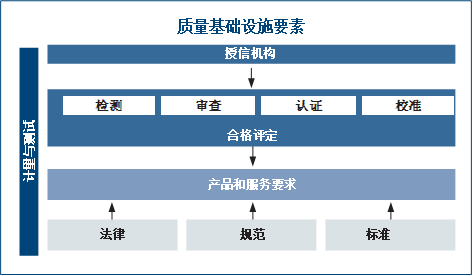
Figure 1: quality infrastructure elements in Germany
Quality infrastructure is also an important tool for German enterprises to strive for their own interests in removing barriers and frictions in international trade. Only through internationally recognized product requirements and conformity assessment procedures can we sell products across borders and ensure the compatibility of products and services. In order to eliminate the cross-border exchange of goods and overcome the technical barriers to trade, Germany actively carries out international coordination with the quality infrastructure of various industrial countries. The coordination of German quality infrastructure at the national level depends on the cooperation of law, economic circles, standard setting institutions and certification institutions, which completely constructs the governance structure of quality infrastructure made in Germany. Each element is an indispensable organic part.
Standards describe products, services, technologies or processes, and define compatibility, quality and safety standards for the standardization of tangible and intangible objects. They are standardized by recognized standardization organizations. The application of standards is usually voluntary, but it is mandatory and binding if the contract terms or legislators stipulate compliance with standards. Well known participants in this field in Germany include: German Standards Institute (DIN) and German Institute of electrical electronics and information technology (VDE).
Conformity assessment refers to the inspection and certification of the compliance with certain requirements of laws, contracts, standards or other regulations. Conformity assessment includes activities such as calibration, certification, inspection and testing of products, services, processes, systems and personnel. Enterprises and market participants can carry out qualification assessment through legal, contractual or voluntary requirements. Such institutions include German technical monitoring Association (T & uuml; V), German motor vehicle monitoring Association (DEKRA) and ship classification association.
The testing and certification qualification credit institution is an independent third party to confirm that the conformity assessment institution has the ability to perform some conformity assessment activities. If conformity assessment is conducted in sensitive industries or fields (e.g. involving health protection), legislators need to recognize the qualifications of corresponding qualified institutions. In addition, many conformity assessment institutions voluntarily obtain credit to highlight their professional ability and enhance the trust of the assessed party. The German Accreditation Commission (dakks) is the coordinating management body of the German product certification system, which is responsible for evaluating and granting credit to the certification body. Many credit institutions and professional sub committees under it constitute a natural barrier for the quality assurance of third-party testing institutions.
Measurement and testing are not only the necessary elements of quality assurance, but also the basis of conformity assessment. The measurement system ensures the accuracy of the measurement results by comparing the measurement results with national standards, so as to calibrate the measurement equipment and methods to meet the requirements of the industry. In addition, the law in the field of measurement also stipulates the official requirements for measurement units, measurement methods and measurement equipment in areas where the state provides special protection to citizens. The German Federal Institute of physics and Technology (PTB), which is subordinate to the German Federal Ministry of economy and energy, is the most authoritative institution in the field of measurement in Germany. The German government clearly stipulates that the Federal Institute of physics and technology shall not participate in any market competition related to the calibration of expected quantities, and can only calibrate the certified credit institutions approved by the state and the measurement standards of various federal states.
Market supervision: ensure that the products provided on the market are controlled and monitored in compliance with existing laws and regulations, inform the public of dangerous products, and take appropriate measures to ensure that the entities in violation of laws and regulations comply with relevant regulations again. The German Federal Association for occupational safety and health (BAuA) is the representative of the more important market supervision organization.
National quality infrastructure is also a strategic material
National quality infrastructure (nqi) is not only an important cornerstone to improve the quality of economic and social development, but also a core element and strategic resource of global competition. Research on the efficiency evaluation and simulation model of quality infrastructure, theoretical and practical research on the efficiency evaluation of industrial product quality infrastructure, research on enterprise quality infrastructure integration technology and efficiency evaluation, and Research on efficiency and market supervision are all urgently needed and must be done well in China. Communication and standard harmony with international standards bodies, certification bodies, measurement institutions and regulatory bodies will also pave the way for made in China to become a gold lettered signboard like made in Germany in the future.
High technology is usually driven by high quality, while high quality is picked out by "demanding" customers. To meet the stringent requirements of customers, the measurement research and implementation institutions, standard setting institutions, certification institutions, credit units, certification institutions and supervision institutions involved in the quality infrastructure need to jointly assume the corresponding roles and responsibilities, And as the last line of defense in the construction of legal system, so as to improve China's quality infrastructure at the system level. More than 20 years ago, Baosteel still insisted on selling 10% of its products to the world's most demanding users (such as Nissan), which established Baosteel's position in the automotive industry.
German Accreditation Committee jointly organized by the government, society, etc
The German Accreditation Commission (dakks) designated by the federal government is similar to China's CNAs, but it is jointly composed of the government, society, etc. It is the coordinating authority of the German product certification system. According to the regulations of the European Commission (EC) No. 765 / 2008) and the Certification Authority Act (akkstelleg), as the administrator of German certification qualification, it represents the most stringent standards in Europe.
Founded in May 1991, the German Accreditation Committee is jointly established by nearly 20 institutions, including the German federal government, the German Ministry of economy and Technology (BMWA, now the Federal Ministry of economy and energy), the German chemical Accreditation Agency (Dach), the German testing Accreditation Agency (DAP), the German Technical Accreditation Agency (DAR Tech), the German Society for Standardization (DIN) and the German Federal Institute for material inspection (FBAM), This includes many representatives of industry who can actively influence German recognition policies, such as the German Federation of industry (BDI). Its main task is to coordinate the work of laboratories, testing institutions, certification institutions and conformity assessment institutions in the field of certification / accreditation, especially the relationship between compulsory and non compulsory accreditation organizations, and publish the list of accredited certification institutions and accredited laboratories on behalf of German accreditation organizations at home and abroad. Its subordinates have specially established various industry committees to standardize the credit certification authority from a technical point of view.
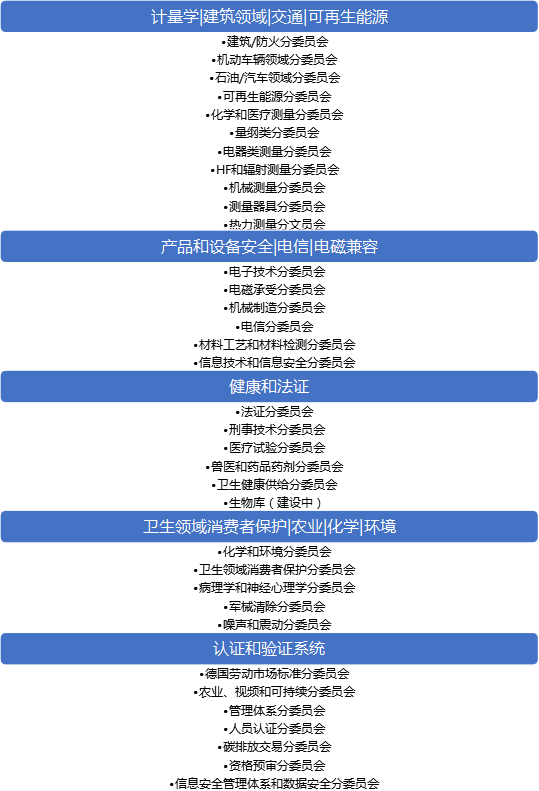
Figure 2: Industry Sub Committee of the German Accreditation Commission (source: dakks website)
In addition, in 2010, the certification advisory board (AKB) was established under the leadership of the Federal Ministry of economy and energy (BMWi) in accordance with the certification bodies act (akkstelleg). It advises and supports the federal government and the German Certification Commission (dakks) on certification issues, and the Certification Commission certifies the conformity assessment body (KBS). As long as the conformity assessment organization meets the corresponding international and German standards, it can engage in conformity assessment. In addition, each evaluation organization has also been included in the corresponding database( https://www.dakks.de/content/akkreditierte-stellen-dakks )(I) facilitate access and screening by all participants.
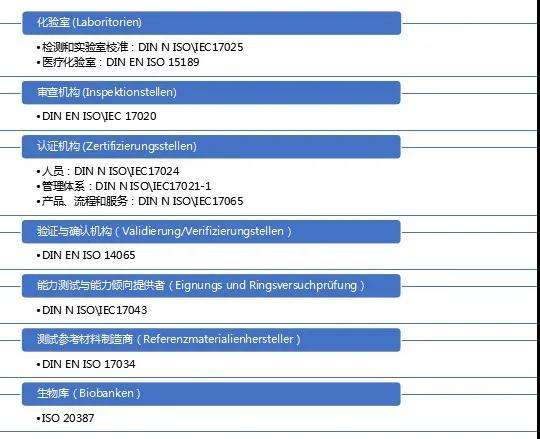
Figure 3: types of German conformity assessment bodies (source: dakks website)
In addition to the certification of credit institutions, the legal guarantee also constitutes the final traceability and mandatory barrier of the certification system. It can be said that the laws on certification in Germany are all inclusive, and the most basic one is the certification authority law (akkstelleg). German legislators passed the approval authority law (akkstelleg) in 2009, which is consistent with the provisions of European Commission Regulation (EC) No. 765 / 2008. The law stipulates the following key points: the tasks and powers of authorized institutions, the organizational form of authorized institutions, the Accreditation Advisory Committee, accreditation marks, fees and expenses, supervision, cooperation with government agencies and the transfer of existing regulatory responsibilities.
Apart from the law on accreditation bodies, there are a large number of laws directly and indirectly related to the certification system. For example, in view of product safety, it plays a very important role in the entry of products into the market, and the laws in this field are the most. In Germany, the legal norms related to product safety mainly include: Product Safety Law (prodsg) and a series of implementation regulations. For example, the safety regulations for electromechanical equipment used within a certain voltage range (prodsv), or the regulations on toy safety (gpsgv); Medical Products Act (MPG), electromagnetic radiation affordability of electromechanical equipment Act (emvg), radiation equipment and communication facilities Act (fteg), product energy consumption environmental compliance Act (evpg).
From the perspective of internal factors, the German government has adopted a gradual evolution model in the field of product quality supervision and inspection, continuously strengthened the functions of regulators, and introduced third-party testing and certification institutions to improve the supervision efficiency and strengthen the service awareness of enterprises. In the German consumer goods market, the independent mode of separation of government and enterprises drives people's demand for quality and safety. An independent third-party organization with rich industry experience and technical skills, recognized by the accreditation institution and / or authorized by the government department, carries out product quality testing and certification for the enterprise.
Advanced certification system
The German Quality Supervision Association TUV standard has gone all over the world. The purpose of TUV application safety standard is to prevent personal injury and property loss caused by various hazards that may occur during the use of household appliances, mechanical products and automotive products, including electric shock or electric shock, excessive temperature or fire, mechanical hazards, radioactive hazards and chemical hazards. T & uuml; The V mark is German T & uuml; V is a safety certification mark specially customized for component products, which is widely accepted in Germany and Europe. GS certification is based on the German product safety law (prodsg) and carries out voluntary testing certification according to the European Union harmonized standard (EN standard) or German industrial standard (DIN standard). It is a recognized German safety certification mark in the European market. Some requirements are more stringent than those of CE directive and have a loyal customer base, It is highly recognized by consumers in Europe, especially in Germany. TÜ The standards for V certification are mainly European standards such as EU en / German DIN. Taking household appliances as an example, household appliances regulations all over the world are based on IEC standard IEC60335.
In recent years, with the full spread of digital transformation in Germany and Germany, Italy and France under the leadership of Germany, the German government has specially established the German Federal Information Security Office (BSI) to ensure information security and digital energy transformation security. Its work areas include: consulting for the government, the private sector and Society (department code B), network security and critical infrastructure (department code CK), digital, certified and standardized network security (department code D, in which department D2 is responsible for certification and standardization), and cryptographic technology and it management (Department code KT).
At present, the certification and standardization department standardizes and certifies the information technology security requirements of information technology security products, infrastructure and services based on public and legal frameworks. Most of the participants in the operation of the system take a more positive attitude to build an ecosystem in this field. The business community looks forward to strengthening Germany's position to ensure the security and privacy of information technology, providing support to German manufacturers in the international environment, and fairly auditing private test centers to ensure the maximization of the interests of manufacturers; Based on this, the policy level hopes to participate in the preparation of international standards and professional knowledge in the design of appropriate safety guidelines; All sectors of society also hope to use the internationally recognized test quality of the system, such as geographic information standardization organization (sogis), common evaluation criteria mutual recognition agreement (CCRA) and dakks, and build trust with the authorization and reputation of BSI.

Figure 4: Participants in the German information security standard certification system
The scope of certification includes product certification and system and service certification. Both require the professional qualification and qualification certificate of test center / personnel, as well as the certification of safety services, such as ISO / IEC17025. Taking Huawei ar series service routers as an example, ar1220 has passed BSI certification, while another Huawei Optix OSN 1800 V v100r13c00 and more equipment certification are also in progress. The principle followed is: Law (bsig): if the necessary standards are met and the evaluation is successfully completed, and the public right does not conflict with the issuance of such certificates, certificates can be issued.
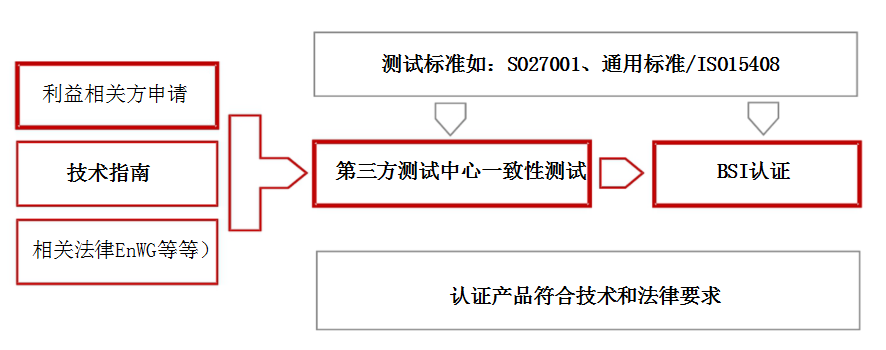
Figure 5: basic process of information security certification in Germany
At present, as an independent national certification body in information security, BSI in Germany formulates technical standards and certification as a tool for government supervision.Many topics are involved in the field of key infrastructure protection, including:E-health, energy network, Eid documents, telematics and payment transactions in transportation, etc.BSI supports government legal initiatives through tailored technical standards and certification processes, as well as at the European and national levels. More than 100 certificates are issued each year, of which about 75% are high assurance level certificates.In addition, it operates nine national assessment laboratories.
China's certification and testing institutions urgently need to be connected
With the high-quality development of China's economy and the promotion of the globalization strategy of Chinese enterprises, based on the above introduction to international certification and testing institutions, especially German certification and testing institutions, and the observation of insiders, it is not difficult to see that China's current certification and testing institutions are mainly "national teams", while private testing and certification institutions are still Fengmao water chestnut compared with international testing institutions. For example, China Quality Certification Center (CQC). CQC has branches abroad, including Germany. At present, its overseas institutions also provide certification for many enterprises exporting to China so that they can smoothly enter the Chinese market. In the face of the rapid development of domestic and international e-commerce in recent years, foreign certification institutions have tried to cooperate with Taobao to guide the consumption concept and provide third-party inspection of factories, so as to make online shopping more assured. This piece of certification is precisely the standard and certification testing market that China may dominate. It would be a pity if only international testing and certification institutions still occupy the market.
The more important challenge for China's testing and certification institutions is how to go abroad and become a global destroyer made in China. To open up the situation in the international testing and certification market, the first step is to reach a trust and credit relationship with the authorized unit of the certification and testing institution. With the most authoritative certification in the world, the German Certification Commission (dakks) and the German Safety Certification Technology Center (ZLS), similar to China Certification Regulatory Commission and China National Accreditation Commission for conformity assessment (CNAs), there are no restrictions on foreign certification institutions. Therefore, on the premise of meeting the corresponding regulations, it is completely possible to gradually establish a reputation abroad. Another suitable way for expansion is to use the qualification of a local certified enterprise to expand the local market. The global qualification layout, especially the qualification certification in Europe, America and other developed countries, is particularly important. The more kinds of products you get, the faster the development will be. Take CQC as an example. At present, there are many sites in the world, and there are institutions in every country in Europe. However, it only manages foreign products to enter China, but does not operate the testing and certification qualification to enter EU countries, and such things can be spread out and gradually extended to the whole category. Making rational use of the capital market and the institutional driving force of our country is more able to establish their own reputation and expand the market for private testing and certification enterprises.
Chinese manufacturing enterprises cannot travel the world business sea by themselves. "China certification, as a destroyer, needs to keep pace. This is the German manufacturing and German quality infrastructure, which has left a clear background for Chinese industry.
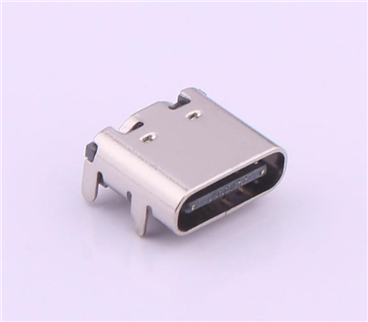



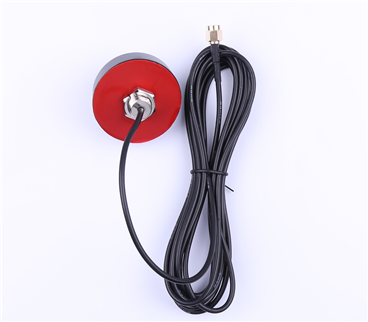
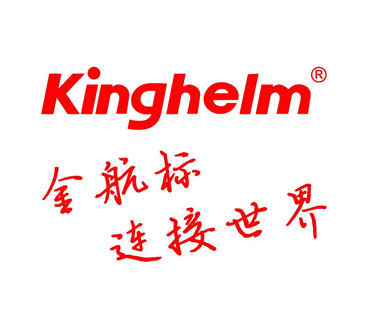





Copyright © Shenzhen Kinghelm Electronics Co., Ltd. all rights reservedYue ICP Bei No. 17113853
